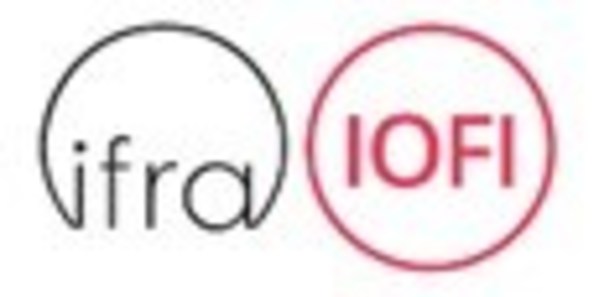 |
SINGAPORE, June 29, 2021 /PRNewswire/ -- The first collective Sustainability Report by the fragrance and flavor industries – published on World Environment Day on 5 June - shows positive results against a series of commitments made by companies.
The 2020-21 Sustainability Report (ifra-iofi.org/report) is published by The International Fragrance Association (IFRA) and the International Organization of the Flavor Industry (IOFI). It outlines the state of play in five Focus Areas that form part of the IFRA-IOFI Sustainability Charter – a collective commitment to raise the bar across the industries, which was launched in July 2020 and now has 126 signatories. A third of these signatories are from the Asia-Pacific region.
Asia-Pacific plays an integral role in the end-to-end global supply chain and research and development (R&D) activities of the fragrance and flavor industries. The Asia Pacific region is a key supplier of raw materials, being the largest producers of mint, cedarwood, patchouli, other spices, and herbs. Extracts of these materials are essential ingredients in the manufacturing process of personal care, hygiene and sanitizing products. These products are widely consumed across the Asia-Pacific region and beyond.
With the ongoing COVID-19 pandemic, the demand for such products maintained good growth driven by the awareness of consumers on the need to maintain hygiene, at a personal level as well as at home, to reduce the chances of infection. Across the value-chain, it is creating new markets and job opportunities, and propelling workforce upskilling, with safe use and sustainability as key considerations as the market grows.
As such, it is heartening that the results show that more than two in every three companies who responded to a survey, representing more than 90 per cent of the F&F market, are already addressing the sustainability challenges outlined in the five Focus Areas:
Launching the report, Sven Ballschmiede, IOFI Executive Director, said:
"The results in the report show a high level of maturity in the industries on sustainability across all five Focus Areas. It has been a long, collective effort to develop the Charter but the results in this report show we are in a good place as the F&F industries."
"We will continue to support companies and work collectively to deliver the tools and partnerships for progress in upcoming reports."
Martina Bianchini, IFRA President, added:
"Sustainability is an imperative for all industries, and not least the F&F industries, which are rooted in nature. With the publication of this Sustainability Report, we have reached a significant milestone on our sustainability journey – but our work goes on to expand uptake of the Charter, raise awareness, and work with customers, partners and stakeholders to design the safe and sustainable products of the future."
The results in the 2020-21 Report will form the baseline for future reports, allowing the industries to track progress. The Report also highlights a series of collective actions taken since the launch of the Charter eleven months ago, as well as partnerships and initiatives undertaken by IFRA and IOFI on behalf of the industries.
The Charter continues to be open to signatories from fragrance and flavor companies around the world. Signatories will provide data on progress in 2021 ahead of the publication of the next report in mid-2022.
For more information on the Charter, go to ifra-iofi.org.
About the International Fragrance Association
The International Fragrance Association, founded in 1973, represents the interests of the fragrance industry worldwide. IFRA comprises seven multinational Regular Members and 21 national associations in four global regions representing hundreds of small and medium-sized fragrance ingredient manufacturers, as well as supporting members. Its mission is to promote the safe use of fragrance for everyone's enjoyment.
Fragrances are a key platform technology used by consumer goods companies – for fine fragrances, personal care products, household care and more.
IFRA's flagship safe use program, the IFRA Standards, applies safety management measures based on scientific assessment and the evaluations of an independent Expert Panel. The program is at the heart of the IFRA Code of Practice, which applies to all IFRA members globally, including members of IFRA's 21 national associations. The Code also requires members to abide by local, national and international regulation, and to apply good manufacturing practices.